Québec Takes Bold Steps to Electrify Transportation!
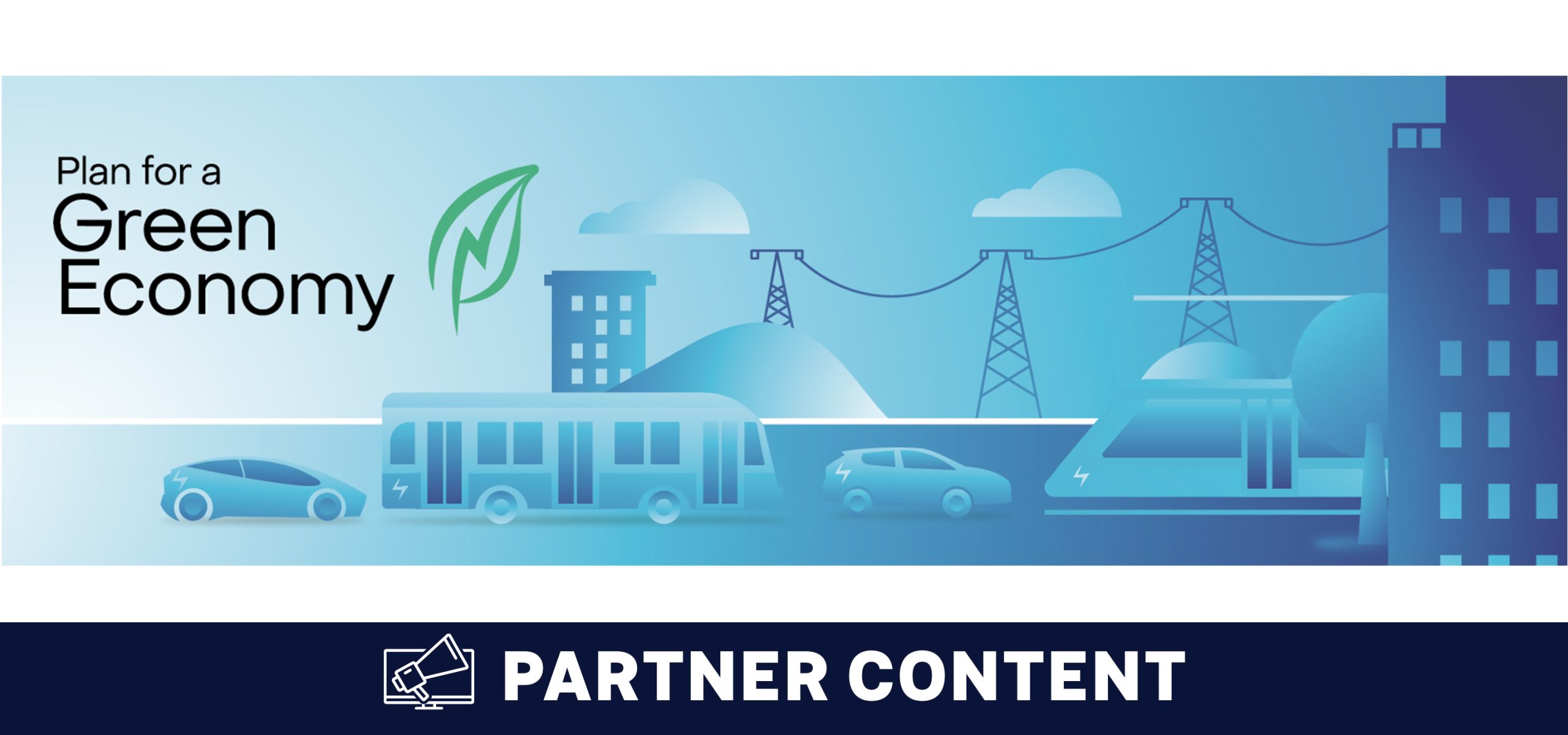
On November 16, the Government of Québec unveiled the 2030 Plan for a Green Economy (2030 PGE), along with its initial implementation plan for 2021-2026. The guidelines set out in the plan commit Québec to an ambitious project: transitioning to a green, resilient and more prosperous economy powered by clean electricity by 2030.
The 2030 PGE is backed by major financial resources. Over the next five years, $6.7 billion will be invested to meet the climate challenge and make Québec a green economy leader.
The priority is to replace fossil fuels to the extent possible with our low-carbon electricity in the transportation, industry and building sectors. We will invest heavily to ensure that our industries use hydroelectricity and other renewable energies. We will also make greater use of our electricity to heat our buildings and thereby reduce heating-based emissions by half compared to 1990.
Since transportation accounts for more than 43% of Québec’s greenhouse gas emissions, special attention is being given to the electrification of this sector. The targets are particularly ambitious:
- 1.5 million electric vehicles registered in Québec by 2030;
- electrification of 65% of school buses, 55% of city buses and 40% of taxis by 2030;
- electric vehicle sales to reach 100% of all automobile sales and the sale of gasoline-powered vehicles to be prohibited by 2035.
The energy supply for all these vehicles will be provided by an expanded network of charging stations. In addition to residential and workplace stations, Hydro-Québec will ensure that its network includes up to 4,500 standard public charging stations in city centres by 2028 and 2,500 public fast-charge stations by 2030.
Moreover, the government is earmarking $3.6 billion for the transportation sector alone, to which will be added unprecedented investments of $15.8 billion in public transit under the 2020‑2030 Québec Infrastructure Plan. Major electric public transit projects have already been given the go-ahead.
We also announced our intention to tighten the Zero Emission Vehicle (ZEV) standard for light vehicles and adopt a standard for heavy vehicles. $225 million is being allocated for programs that will promote the electrification of trucks and commercial vehicle fleets.
The government will lead by example by giving priority to electrifying its own light vehicle fleet. By 2030, all government cars, vans, minivans and sport utility vehicles (SUVs) and a quarter of its pickup trucks will be electrified. The charging station network in government buildings will also be enhanced. Electrifying the government’s vehicle fleet and deploying the installation of charging facilities will serve as technological showcases and constitute an important lever for developing these emerging sectors while contributing to their international profile.
Support for the electrification sector
This sweeping transportation electrification project represents an exceptional opportunity for economic growth and development for all industries related to it.
Québec has what it takes to capitalize on the global enthusiasm for electric vehicles. In addition to cars, we manufacture virtually all kinds of land transportation vehicles: scooters, bikes, snowmobiles, buses, special vehicles (ambulances, waste collection trucks), freight trucks, light rail vehicles and trains. The entire Québec transportation electrification industry, of which you are a part, is hard at work, and there’s no shortage of ambition!
We’re aiming to go even further. Deploying the Québec Battery Strategy will make it possible to exploit and transform minerals found in Québec to manufacture battery components, produce electric commercial vehicles and develop battery recycling using advanced Québec technologies. Additionally, implementing the Québec Plan for the Development of Critical and Strategic Minerals 2020-2025 will foster the development of value chains for strategic and critical minerals, including lithium.
At a time when Québec is hard hit by the current health crisis, the government believes that economic recovery can be achieved in part through promising projects focused on transportation electrification that will create jobs in Québec and contribute to its prosperity.
Together, let’s seize the opportunity that the fight against climate change affords us to enrich Québec and make it stand out internationally.
This partner content was produced for Impulsion MTL 2020 – The International Fleet Management Forum.
Continue reading on this subject

The challenges of designing a 40-tonne, 100% electric mining vehicle for open-pit mines
Partnerships and implications The partners involved in the development of a 100% electric Quebec mining vehicle were all eager to be involved with the project from the outset, for a variety of reasons. NRC’s Eddy Zuppel explained their contribution: “Before starting the project, it was important to model and simulate the vehicle’s route in order […]
Read more
Energy efficiency: Financial support to put your ideas into action
Leading a company involves balancing several priorities at the same time. Energy efficiency? It’s an important issue—one of many! What if we gave you what you need to make energy efficiency a driving force behind your company’s performance and profitability? The good news is, Hydro-Québec offers financial assistance and guidance to help you balance performance and energy efficiency.
Read more
My Consumption Profile: data that lets you strategically manage your electricity use
Companies have a critical role to play in the energy transition. Knowing that energy efficiency factors big into profitability, your organization will benefit from strategically managing its electricity use. The key? Your data!
Read more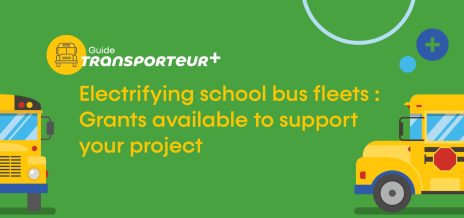
Electrifying school bus fleets : Grants available to support your project
In this series of articles, we demystify the key steps of converting your school bus fleet to electric power thanks to the Transporteur+ guide. This guide aims to provide easy and direct access to resources to clarify the steps, issues, conditions and facilitating measures for a successful transition to electrification.
Read more
Electrifying school bus fleets | Key step : Comissioning
In this series of articles, we demystify the key steps of converting your school bus fleet to electric power thanks to the Transporteur+ guide. This guide aims to provide easy and direct access to resources to clarify the steps, issues, conditions and facilitating measures for a successful transition to electrification.
Read more
FINANCING | $50 million from Finalta Capital in non-dilutive financing dedicated to the Electric and Smart Transportation sector
Fast growing, innovative companies from the electric and smart transportation (EST) sector in Québec take advantage of the $50 million in funding dedicated to the EST ecosystem by Finalta Capital, one of Canada’s largest funds specialized in non-dilutive tax credit and government grant financing, announced in March 2023 as part of the Impulsion conference, the International EST Summit organized by Propulsion Québec.
Read more
Demand response: Save money by using hydro at the right times
If you could lower your company's hydro bill while contributing to the collective effort to support Quebec’s energy transition, would you? Yes, most likely! How? By curbing power demand for buildings and equipment during peak demand events.
Read more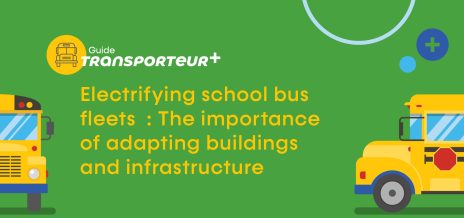
Electrifying school bus fleets : The importance of adapting buildings and infrastructure
In this series of articles, we demystify the key steps of converting your school bus fleet to electric power thanks to the Transporteur+ guide. This guide aims to provide easy and direct access to resources to clarify the steps, issues, conditions and facilitating measures for a successful transition to electrification.
Read more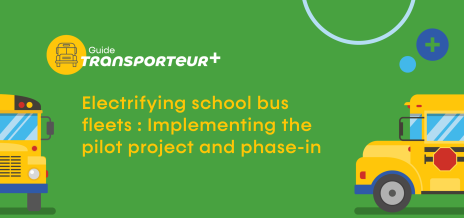
Electrifying school bus fleets : Implementing the pilot project and phase-in
In this series of articles, we demystify the key steps of converting your school bus fleet to electric power thanks to the Transporteur+ guide. This guide aims to provide easy and direct access to resources to clarify the steps, issues, conditions and facilitating measures for a successful transition to electrification
Read more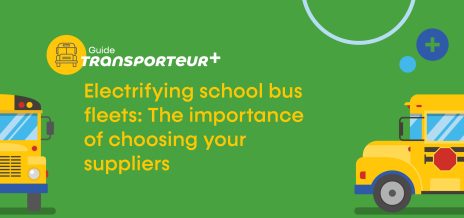
Electrifying school bus fleets: The importance of choosing your suppliers
In this series of articles, we demystify the key steps of converting your school bus fleet to electric power thanks to the Transporteur+ guide. This guide aims to provide easy and direct access to resources to clarify the steps, issues, conditions and facilitating measures for a successful transition to electrification.
Read more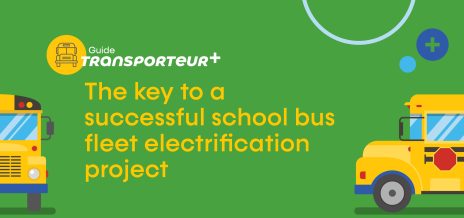
The key to a successful school bus fleet electrification project
In this series of articles, we demystify the key steps of converting your school bus fleet to electric power thanks to the Transporteur+ guide. This guide aims to provide easy and direct access to resources to clarify the steps, issues, conditions and facilitating measures for a successful transition to electrification.
Read more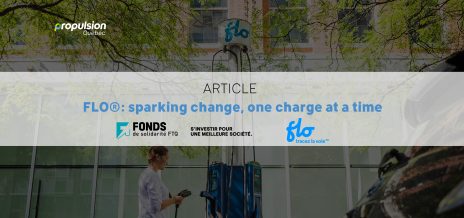
FLO®: sparking change, one charge at a time
FLO became a leader in electric vehicle (EV) charging in North America by integrating the process from start to finish: manufacturing charging stations, developing software and managing its network. To stay ahead of the curve in a fast-moving, innovation-driven market, the company turned to the Fonds de solidarité FTQ to support its growth.
Read more




